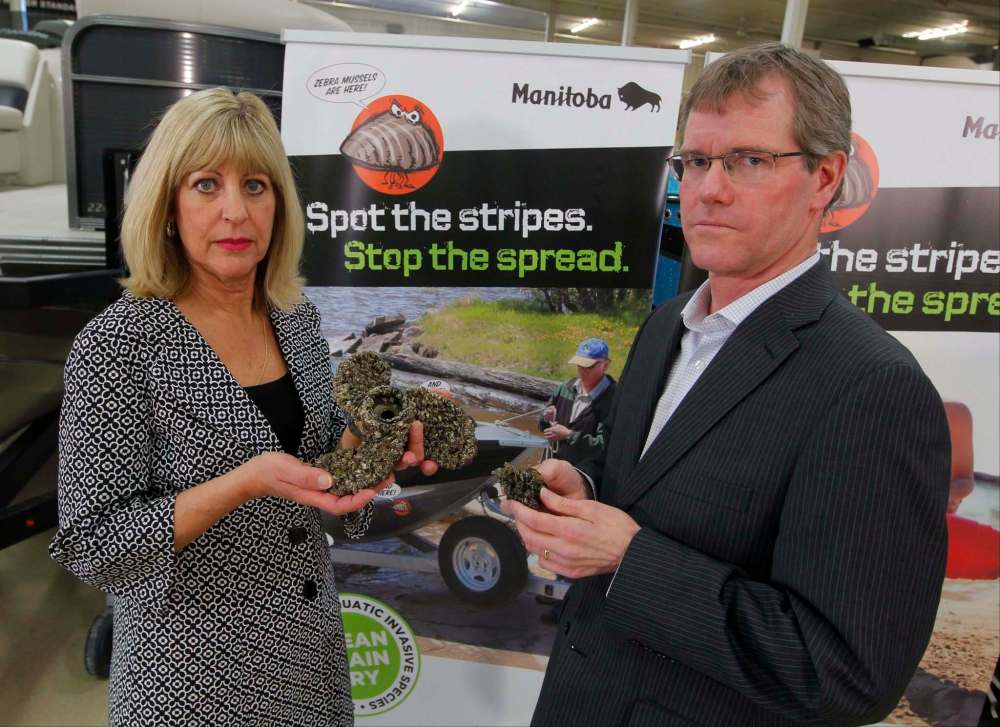Campaign looks to muscle out mussels
Advertisement
Read this article for free:
or
Already have an account? Log in here »
To continue reading, please subscribe:
Monthly Digital Subscription
$0 for the first 4 weeks*
- Enjoy unlimited reading on winnipegfreepress.com
- Read the E-Edition, our digital replica newspaper
- Access News Break, our award-winning app
- Play interactive puzzles
*No charge for 4 weeks then price increases to the regular rate of $19.00 plus GST every four weeks. Offer available to new and qualified returning subscribers only. Cancel any time.
Monthly Digital Subscription
$4.75/week*
- Enjoy unlimited reading on winnipegfreepress.com
- Read the E-Edition, our digital replica newspaper
- Access News Break, our award-winning app
- Play interactive puzzles
*Billed as $19 plus GST every four weeks. Cancel any time.
To continue reading, please subscribe:
Add Free Press access to your Brandon Sun subscription for only an additional
$1 for the first 4 weeks*
*Your next subscription payment will increase by $1.00 and you will be charged $16.99 plus GST for four weeks. After four weeks, your payment will increase to $23.99 plus GST every four weeks.
Read unlimited articles for free today:
or
Already have an account? Log in here »
Hey there, time traveller!
This article was published 03/03/2017 (3171 days ago), so information in it may no longer be current.
They are small, aquatic hitchhikers eager to travel and no one should pick them up.
Zebra mussels, which have striped shells and reproduce rapidly, are an invasive species known for damaging the environment, equipment and infrastructure. They spread by hitching a ride on or in watercraft and water-related equipment when the vessels haven’t been decontaminated and are then used in different bodies of water.
One mussel can produce up to one million eggs during a single spawning season. Within three to five days, the eggs become microscopic larvae — called veligers — that can swim.

The menacing mollusks have infested three Manitoba waterways since being found in the province in 2013 — Lake Winnipeg, the Red River and Cedar Lake — so the province is reaching out to Manitobans with a public awareness campaign called Spot the Stripes and Stop the Spread.
The campaign is encouraging users of provincial waterways to take an active role in stopping the spread of zebra mussels and other aquatic invasive species by cleaning, draining and drying all watercraft and water-related equipment before and after use and to put all unused bait in trash bins.
New to this year’s campaign is an appeal to children to help their family members clean, drain, dry and dispose when using Manitoba waterways.
Zebra mussels can have serious impacts on the environment.
Once established in a body of water, they accumulate in clusters on boats and water-borne equipment and infrastructure such as docks, intake pipes and other water-based infrastructure. Zebra mussels can also impact fish populations and recreation through the deposit of sharp shells washing up on beaches.
— staff

